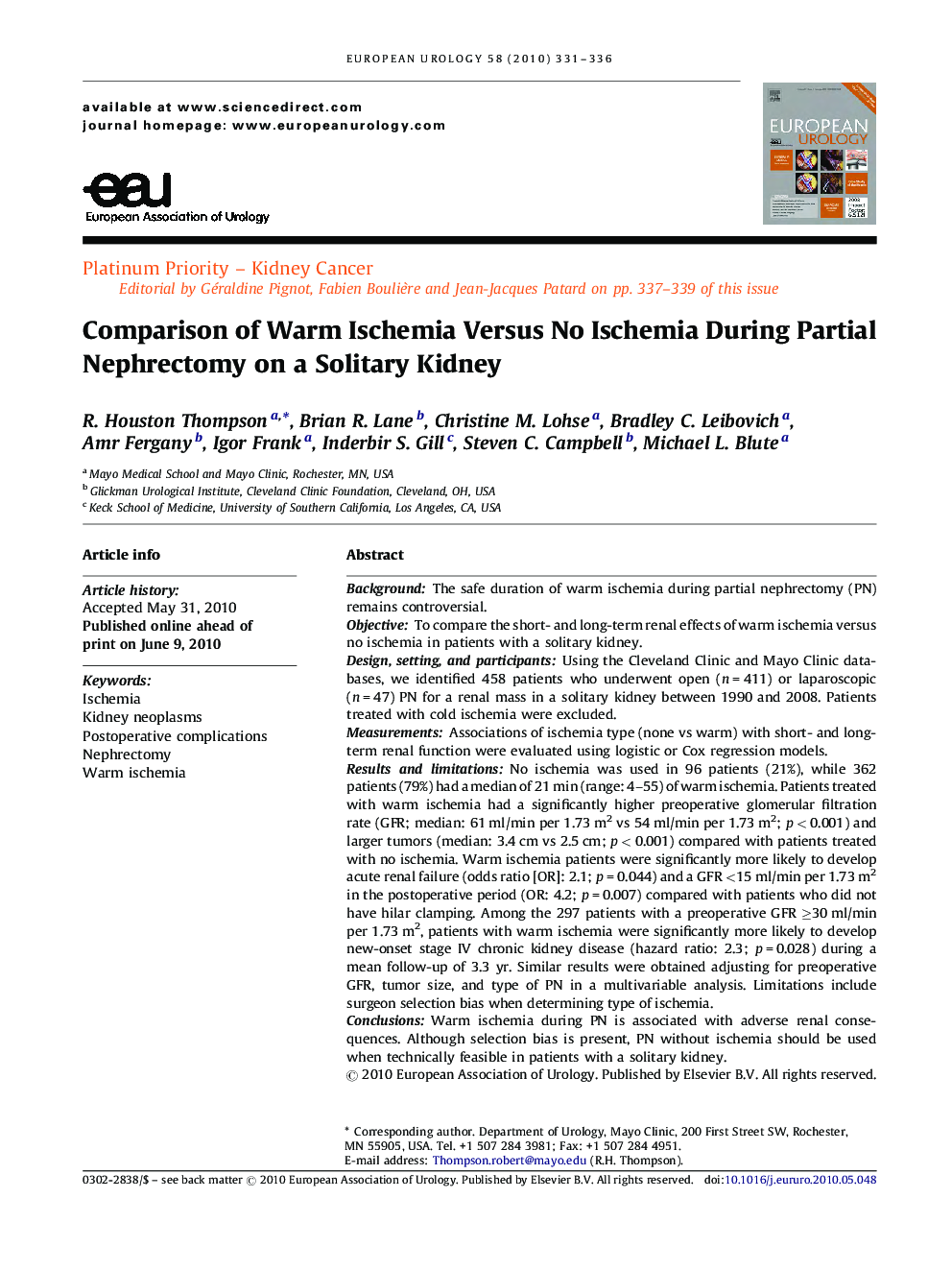| کد مقاله | کد نشریه | سال انتشار | مقاله انگلیسی | نسخه تمام متن |
|---|---|---|---|---|
| 3924840 | 1253117 | 2010 | 6 صفحه PDF | دانلود رایگان |

BackgroundThe safe duration of warm ischemia during partial nephrectomy (PN) remains controversial.ObjectiveTo compare the short- and long-term renal effects of warm ischemia versus no ischemia in patients with a solitary kidney.Design, setting, and participantsUsing the Cleveland Clinic and Mayo Clinic databases, we identified 458 patients who underwent open (n = 411) or laparoscopic (n = 47) PN for a renal mass in a solitary kidney between 1990 and 2008. Patients treated with cold ischemia were excluded.MeasurementsAssociations of ischemia type (none vs warm) with short- and long-term renal function were evaluated using logistic or Cox regression models.Results and limitationsNo ischemia was used in 96 patients (21%), while 362 patients (79%) had a median of 21 min (range: 4–55) of warm ischemia. Patients treated with warm ischemia had a significantly higher preoperative glomerular filtration rate (GFR; median: 61 ml/min per 1.73 m2 vs 54 ml/min per 1.73 m2; p < 0.001) and larger tumors (median: 3.4 cm vs 2.5 cm; p < 0.001) compared with patients treated with no ischemia. Warm ischemia patients were significantly more likely to develop acute renal failure (odds ratio [OR]: 2.1; p = 0.044) and a GFR <15 ml/min per 1.73 m2 in the postoperative period (OR: 4.2; p = 0.007) compared with patients who did not have hilar clamping. Among the 297 patients with a preoperative GFR ≥30 ml/min per 1.73 m2, patients with warm ischemia were significantly more likely to develop new-onset stage IV chronic kidney disease (hazard ratio: 2.3; p = 0.028) during a mean follow-up of 3.3 yr. Similar results were obtained adjusting for preoperative GFR, tumor size, and type of PN in a multivariable analysis. Limitations include surgeon selection bias when determining type of ischemia.ConclusionsWarm ischemia during PN is associated with adverse renal consequences. Although selection bias is present, PN without ischemia should be used when technically feasible in patients with a solitary kidney.
Journal: European Urology - Volume 58, Issue 3, September 2010, Pages 331–336